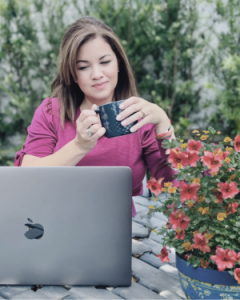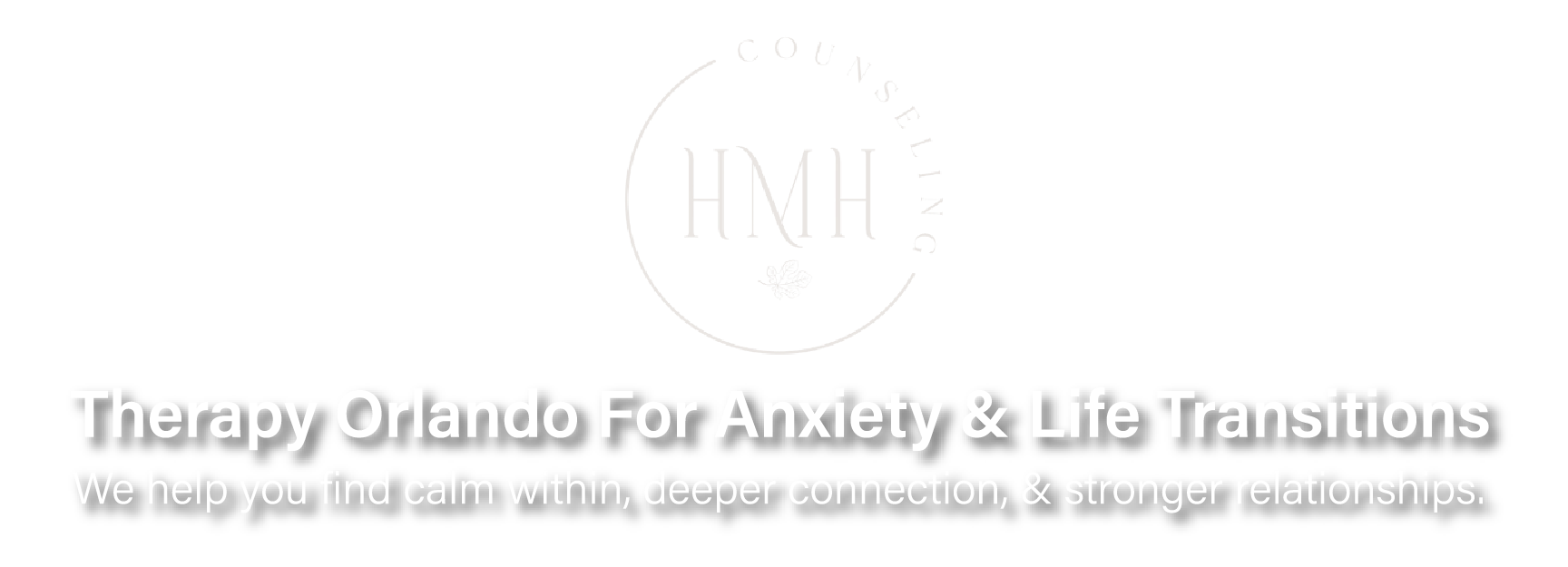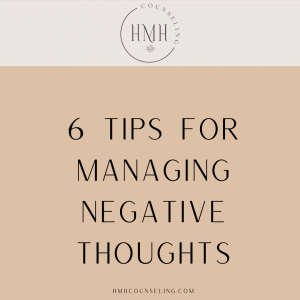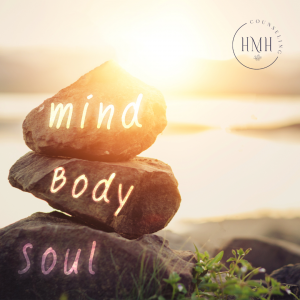January 3 • Written by: Jennifer Sierra, LMHC
As winter invites us to slow down and rest, many of us find ourselves doing the opposite – constantly moving, doing, and thinking. If you’re reading this, you might know how hard it is to simply sit still, to quiet your mind, or to stop carrying everyone else’s needs on your shoulders. As a therapist who helps people find natural ways to heal from anxiety, I see how deeply this always-on state affects people’s lives.
Does this sound familiar? Your mind races the moment things get quiet. Even after checking everything off your to-do list, you can’t truly relax. There’s always this feeling that you need to stay in control, to make sure nothing falls apart. Maybe you’ve noticed that even during happy moments – like celebrating an achievement or enjoying time with friends – there’s this restless voice in your head asking “what’s next?” You’re not alone in feeling this way. Research shows more and more people are experiencing this kind of ongoing anxiety in today’s non-stop world [1].
Living with anxiety is like carrying around a heavy backpack that no one else can see. It shows up as tight shoulders, a churning stomach, and that endless feeling that you should be doing more. It’s tiring being the person who can’t switch off, who feels responsible for everything and everyone, who struggles to just be in the moment without thinking about tomorrow. But hidden in this struggle is something beautiful – a chance to reconnect with your inner peace and discover a gentler way of living.
At Holistic Mental Health Counseling in Orlando, we help clients manage anxiety through a holistic approach that goes beyond just talk therapy. Here are seven natural strategies you can start using today to reconnect with calm and build balance in your life.
What’s Really Going On With Anxiety?
Let’s get real about anxiety for a moment. Those racing thoughts, the tight chest, the feeling that everything might fall apart if you let go for just a second? That’s your body and mind trying to protect you [2]. If you grew up having to be the responsible one or take care of yourself emotionally, these feelings probably feel like old friends. While anxiety sometimes serves as a form of self-protection, it doesn’t have to control your present. The key is to understand the underlying cause and find tools that allow you to work through it.
7 Holistic Tools for Anxiety Relief
At HMH Counseling, we believe in treating anxiety not just as something to “fix,” but as a part of your story that deserves understanding and gentle care. Here are some approaches in addition to traditional talk therapy, that have helped many of my clients find more peace and overall wellness into their lives:
 1. Mindfulness (But Not the Instagram Version)
1. Mindfulness (But Not the Instagram Version)
Forget the perfect meditation poses. We’re talking about simple, real-world practices you can do even during your busy day [3]:
- Taking three deep breaths before checking your morning emails
- Feeling your feet on the ground during stressful moments
- Finding micro-moments of pause between tasks
- Daily check ins to tune into your body and learn what you need in the moment
These micro-moments of mindfulness allow your brain to reset without requiring a huge time commitment.
2. Move Your Body

Anxiety settles into your body, often as muscle tension or restlessness. Your body holds so much of your anxiety, and moving it mindfully can be incredibly healing [4]. Gentle movement can be surprisingly powerful in releasing this tension.
- Stretch for a few minutes before your morning coffee.
- Take a 10-minute walk during lunch to clear your head.
- Dance to your favorite song in the kitchen just because it feels good.
The goal isn’t strenuous exercise—it’s being kind to your body in the way it needs most.
3. Spend Time in Nature
Nature offers one of the simplest tools for stress relief. No matter where you live, there are small ways to bring its calming effects into your routine.
- Take a short walk outside to get some sunlight and fresh air.
- Create a small indoor garden with plants that bring life into your space.
- Find a favorite spot outdoors where you can reflect or relax, even for a few minutes.
Research has shown that spending time in nature balances mood and reduces anxiety.
4. Express Your Creativity
Creative expression is a powerful, but often overlooked, way to process anxious feelings. Studies have shown that creative expression can be powerful medicine for anxiety [6]. You don’t have to be an artist to benefit. Simple, enjoyable activities like these can help:
- Keep a journal to jot down thoughts before bed.
- Doodling during your coffee break
- Playing music that moves you
- Coloring while listening to podcasts
When you’re feeling stuck, creativity can open up new emotional pathways.
5. Nourishing Meaningful Connections

For those of us who learned early on to handle everything alone, asking for support can feel foreign. But connection is medicine [7]. As anxiety therapy progresses my clients find that, it becomes less strained and easier with each step forward. his might look like:
- Finding friends who understand your journey
- Joining communities of like-minded people
- Setting boundaries with relationships that drain you
- Creating space for meaningful conversations
6. Prioritize Holistic Self-Care
Think beyond bubble baths (though those are nice too!). Real self-care goes deeper than occasional treats. It’s about building habits that nurture your physical and emotional well-being daily. For instance:
- Creating a morning routine that feels grounding
- Setting boundaries that protect your time, energy and heart
- Choosing foods that support your mood
- Getting enough rest (even if it means saying no sometimes)
7. Seek Professional Comprehensive Support
In today’s fast-paced world, it’s easy to fall into patterns that hold you back. You might find yourself prioritizing others at the expense of your own needs, battling constant worry or shying away from conflicts or new experiences. Sometimes, the strongest thing we can do is ask for help.
Research shows that therapy, especially when combined with holistic approaches, can make a real difference [8]. At HMH Counseling, led by Jennifer Sierra, LMHC, we understand the importance of a comprehensive approach.

Our sessions provide a safe and supportive space where you can:
Process past experiences at your own pace
Learn practical tools for managing anxiety
Develop a healthier relationship with yourself
Explore the connection between your past and present challenges
Whether it’s managing perfectionism, setting boundaries, or coping with life transitions, we’ll work together to craft a personalized plan for your unique needs.
My approach blends compassion with creativity. I offer more than just talk therapy – I provide practical, actionable strategies you can implement in your daily life. Together, we will:
- Make sense of your challenges
- Break old patterns
- Rediscover calm and strengthen connections
I’ll help you take control of anxiety and overwhelm by developing personalized coping strategies, creating self-care routines you’ll actually enjoy, challenging perfectionist thoughts, and fostering self-compassion. Together, we can break free from the habits that once protected you but are now standing in the way of your growth and happiness.
Take the First Step Today
If you’ve been thinking about therapy but haven’t taken the leap, I get it. It’s a big step. But making the decision to address your anxiety actively can open doors to a more peaceful, balanced life.
If you’re ready to explore anxiety therapy in Orlando with someone who gets it, we’re here to help. Schedule a session with Jennifer Sierra, LMHC, and take the first step toward living with less anxiety and more joy.
Contact us today to begin your healing journey.
You’ve already shown incredible strength just by acknowledging that you need support. Together, we can build the life you truly want and deserve. By applying these practical strategies, you can start to reclaim moments of calm and control over your anxiety. Remember, it’s all about small, manageable steps—and you don’t have to take the alone.
References
[1] American Psychological Association. (2022). Stress in America™ 2022: Concerned for the future, beset by inflation. https://www.apa.org/news/press/releases/stress/2022/concerned-future-inflation
[2] van der Kolk, B. (2014). The Body Keeps the Score: Brain, Mind, and Body in the Healing of Trauma. Viking.
[3] Hoge, E. A., Bui, E., Marques, L., Metcalf, C. A., Morris, L. K., Robinaugh, D. J., Worthington, J. J., Pollack, M. H., & Simon, N. M. (2013). Randomized controlled trial of mindfulness meditation for generalized anxiety disorder: Effects on anxiety and stress reactivity. The Journal of Clinical Psychiatry, 74(8), 786-792. https://doi.org/10.4088/JCP.12m08083
[4] Anderson, E., & Shivakumar, G. (2013). Effects of exercise and physical activity on anxiety. Frontiers in Psychiatry, 4, 27. https://doi.org/10.3389/fpsyt.2013.00027
[5] Bratman, G. N., Anderson, C. B., Berman, M. G., Cochran, B., de Vries, S., Flanders, J., Folke, C., Frumkin, H., Gross, J. J., Hartig, T., Kahn, P. H., Kuo, M., Lawler, J. J., Levin, P. S., Lindahl, T., Meyer-Lindenberg, A., Mitchell, R., Ouyang, Z., Roe, J., … Daily, G. C. (2019). Nature and mental health: An ecosystem service perspective. Science Advances, 5(7), eaax0903. https://doi.org/10.1126/sciadv.aax0903
[6] Stuckey, H. L., & Nobel, J. (2010). The connection between art, healing, and public health: A review of current literature. American Journal of Public Health, 100(2), 254-263. https://doi.org/10.2105/AJPH.2008.156497
[7] Ozbay, F., Johnson, D. C., Dimoulas, E., Morgan, C. A., Charney, D., & Southwick, S. (2007). Social support and resilience to stress: From neurobiology to clinical practice. Psychiatry (Edgmont), 4(5), 35-40.
[8] Lake, J. (2017). The integration of psychotherapy and complementary and alternative medicine: A vision for the future. Alternative and Complementary Therapies, 23(1), 14-20.
Disclaimer: The content provided on this blog is for informational purposes only and is not intended to serve as professional advice, diagnosis, or treatment. The information shared is based on our understanding and interpretation of various mental health topics. It is important to recognize the complexity of mental health issues, and the advice provided here may not address the specific needs of every reader. The content on this blog should not be considered a substitute for professional advice from a qualified mental health professional. Always seek the advice of a licensed therapist or other qualified mental health provider with any questions or concerns you may have regarding your mental health or well-being.




